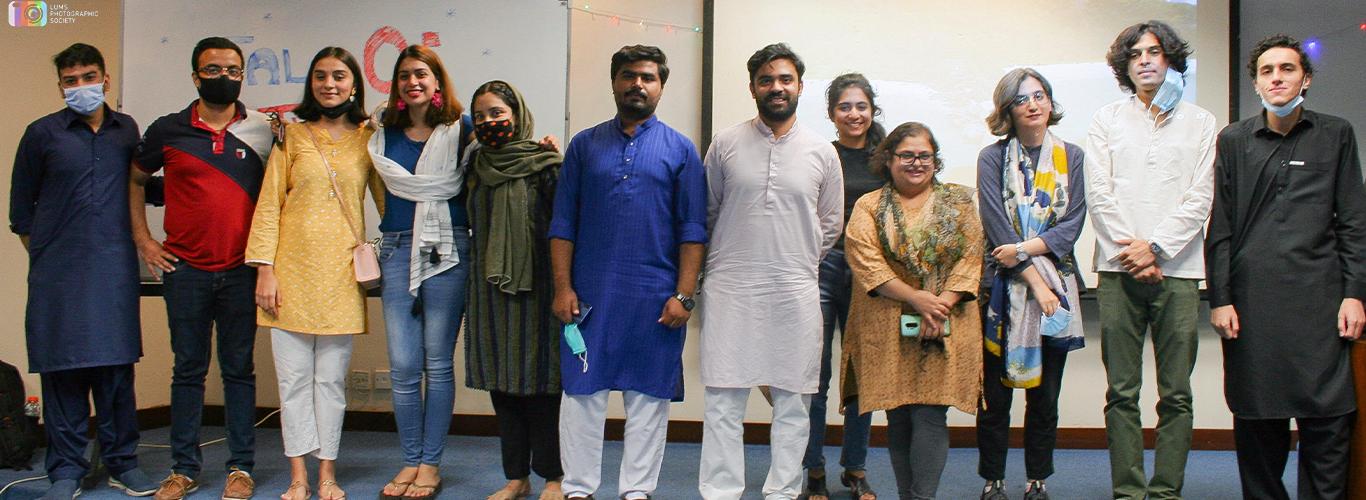LUMS Media and Arts Society Presents ‘Tale of Two Cities’ to LUMS Community
On October 15, the LUMS Media and Arts Society screened an original documentary titled, Tale of Two Cities. The screening, held at a packed auditorium at LUMS, was a culmination of two years of hard work, dedication and patience.
Tale of Two Cities tells the story of a group of students who treaded into unchartered territory, took a journey to remote places, interacted and lived with strangers, and who, deep down, learned to look at the world anew in the end. It tries to depict what happens when people set aside their egos, open their minds and hearts, and instil in themselves a desire to learn, explore and grow. Above all, it is a story of reflection. Among the various observations made by the students at the end of the journey, one was common: the more we try to give to the world, the more it tries to give back. This common observation gives due credit to the inspiration behind the film— the course, Civic Engagement and Service Learning taught and curated by Hiba Zakai, Head of Co-Curricular and Campus Climate at LUMS.
Ms. Zakai shared that the Civic Engagement and Service Learning course came into existence after a series of dialogues with fellow educators and a chance meeting with Justice (Rtd.) Jawwad Khawaja, who invited her to Harsukh, a community-based school that is a part of his home. “That was the start to a wonderful journey of interactions between two different worlds—LUMS students, mostly with a privileged background and the village children with glittering eyes, eager to explore and learn, yet bound by financial and cultural limitations. Hence, this established the foundation of the civic engagement education learning pedagogy, which maintains a balance between theory and action."
The documentary was directed and written by Muhammad Muneeb, a student of the class of 2022 at the Mushtaq Ahmad Gurmani School of Humanities and Social Sciences at LUMS. Talking about his motivation behind making the film he said, "The making of the Tale of Two Cities was an act of sincerity. I wanted to portray the truth candidly and realistically. I went to Lahore and Gilgit, I lived with different people, and I captured their reality. Also, I think making a film means becoming invisible, declaiming yourself, and, in a sense, wiping out your existence in the process; leaving your prejudices aside. And later, editing ought to be an act of synthesis. Give things the attention they deserve, not a scene less, not a scene more.”
The screening of the documentary was followed by a discussion with the students who participated in the course and members of the audience, who appreciated the honest, authentic narrative of the film. Maham Ghazanfar shared her reflection, “The documentary had some key points that stood out to me. The idea about how the students at Harsukh were encouraged to think about their emotions and reflect on their thoughts to invoke critical thinking was presented in a suitable manner, and not in a “superman savior” way. Moreover, the theme throughout mentioned how the initial biases and perceptions of the students who participated in the course changed after the experience. This depicted how the narrative changed the concept from the idea of ‘us’ vs ‘them’ to ‘all of us’.”
Umar Azam also shared how the film inspired him, “The documentary made me realise how important it is for us to look beyond ourselves and give back to the community. Looking at my peers helping the community motivated me to do the same for society. We should work towards bridging the gap between the more privileged and the less privileged sections of the society.”























